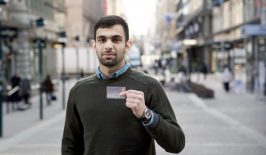Cash is king. As the old saying goes. But could its long reign soon be over? The Better Than Cash Alliance believes that digitalisation doesn’t just make financial transactions safer, but could also create more transparency, control and a boost for the economy, especially in low-income areas of the world. They want to speed up the shift to digital payments around the world by:
- Promoting a transition from cash to digital payment from the point of view of financial inclusion and responsible digital financing.
- Conducting research and surveys on best practices for the introduction of digital payments. The findings will be shared with members to develop strategies for the transition to the digital financial structure.
- Supporting the development of infrastructures for digital payments in the member states. The aim is to reduce costs, increase transparency, promote financial inclusion – especially that of women – and promote inclusive growth.
The alliance was founded in 2012 by the Bill & Melinda Gates Foundation, the Citi Foundation, Visa and MasterCard as well as the Omidyar Network and the United States Agency for International Development. BTCA has its secretariat in the United Nations Office for Capital Development Funds (UNCDP) in New York, which is closely linked to the United Nations Development Programme. Today the Alliance counts 25 states, several international organizations and numerous private companies among its members.
What do digital payments have to do with sustainable development?
Particularly in low-wage countries, few people have access to digital financial structures such as a bank account. Payments for goods or services are then made exclusively in cash. This has various disadvantages.
On the one hand, cash intrinsically has high costs: it has to be transported, secured and stored and the incoming and outgoing payments have to be recorded somewhere. At the same time, cash leaves no trace when handed over and thus promotes under the table payments, money laundering, corruption and embezzlement. Has the employee actually received the salary which they are entitled to, or has a middleman cut off part of their salary? Who is actually receiving the pension that’s picked up each month by a family member? Hard to say. Many women in low-wage countries also have to hand their wages over directly to the head of the family and don’t have free access to their own income.
In addition to all that, cash isn’t available everywhere, especially in regions lacking in the necessary infrastructure. In order to obtain cash, people sometimes have to travel long distances – meaning they also run the risk of being intercepted by someone en route.
And no access to digital financial products means no chance of having a savings account – so no chance to save up for children’s education or for old age.
According to Better Than Cash Alliance studies, digital payments can improve all these areas. For example, a company’s transition to digital payroll not only reduces administrative costs, but also provides greater transparency and traceability of pay structures. In addition, workers receive their money directly, without intermediaries and delays, into a personalized account that ideally only they can view and access. A decentralized virtual account also increases security for the individual, who no longer has to hide their money at home or carry it with them.
According to other surveys, the digitisation of payment transactions makes it possible to access other digital areas and thus ensures digital inclusion in places that until that point hadn’t been able to benefit from the possibilities offered by digitalisation.
Another advantage of virtual payments is that while places that you can access cash are rare in many regions of the global South, today almost every adult – no matter where in the world – has a mobile phone. The Better than Cash Alliance therefore promotes not only digital financial transfer systems and virtual accounts, but also the use of personalized phone credit that can be used for payment transactions. In Kenya and many other countries worldwide, for example, the mobile payment service M-Pesa is already hugely successful.
So why is everyone not in favour of abolishing cash? The biggest concerns around digital payments are concerning data protection. Every electronic payment leaves a data trail meaning there’s the risk of data misuse or theft. The expansion of virtual payments would therefore require strong and effective security controls to ensure that this data is not misused.
This article is a translation by Marisa Pettit of an original article which first appeared on RESET’s German-language site.






